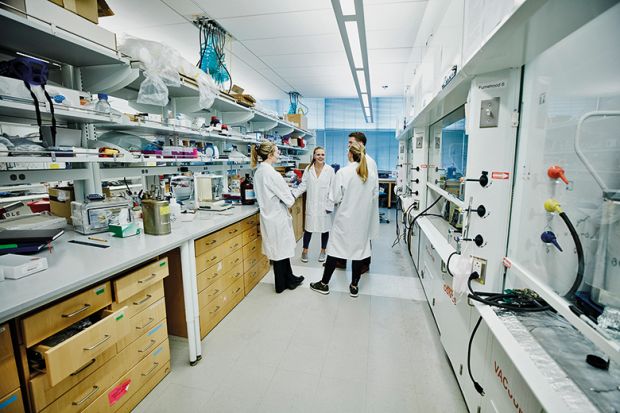Cross-gender friendships ‘critical to helping women in sciences’

Source: Getty
The respect shown by male scientists for their female counterparts is important to the success of the women, but the creation of friendships is even more critical, a study has found.
The study of more than 1,200 workers suggests that more intentional efforts to foster social connections could be key to reducing the gender gap seen throughout the sciences, its lead author said.
Assessments of barriers to gender equity in scientific and technical fields often focus on interpersonal respect deficits, said the author, Emily Cyr, a doctoral candidate in psychology at the University of Waterloo.
But the survey of 385 women and 862 men from nine US and Canadian private- and public-sector organisations, asking about their social networks and job outcomes, showed “that it’s actually the friendship that matters a lot more than the respect”, Ms Cyr said.
“We’re just not seeing the same range of effects when it comes to respect in the workplace versus friendship,” said Ms Cyr, whose report in the Proceedings of the National Academy of Sciences had co-authors at Waterloo and the University of British Columbia.
The authors, she said, defined friendships in the workplace as relationships that involved casual and informal gatherings, such as people who take breaks together for coffee.
But such activities often can be gendered, such as groups of workers who get together at lunch to play basketball, Ms Cyr said.
One main concern identified in the study was the tendency among men with high levels of gender bias – as judged by their tendency in survey data to associate male names with science or engineering – to resist friendships with female colleagues.
And women who reported having fewer social ties with male colleagues were less likely to report that they felt supported and engaged in the workplace, or that they felt like they fitted in.
Universities can set the stage to encourage other kinds of friendships that are beneficial to women, but worker input in that process seems essential, Ms Cyr said. “At the end of the day it has to be grassroots,” she said.
The authors of the paper plan future studies aimed at determining the best ways of identifying such workplace interventions, Ms Cyr said.
The authors say they “cannot rule out the possibility” that women are more likely to avoid socialising with “implicitly biased” men, but other results from the survey suggest men’s reports that women socialised with them – or avoided them – did not correlate with their own assumptions.



